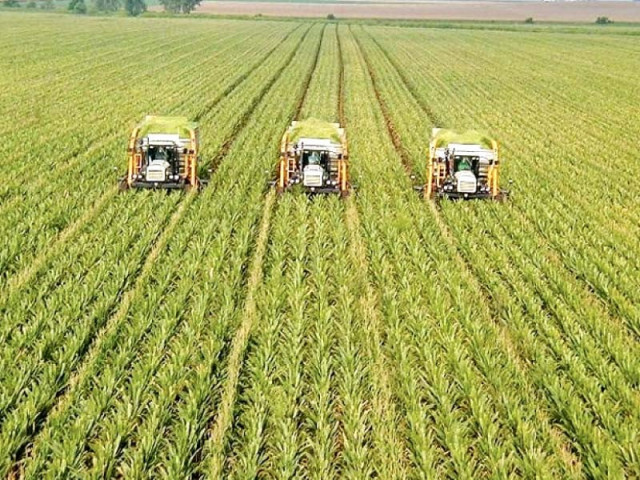Ushr tax proposed for agricultural land
FPCCI agri-body demand sales tax break for farming inputs

Federation of Pakistan Chambers of Commerce and Industry’s (FPCCI) Standing Committee on Agriculture has coined the idea of introducing an Ushr tax on farmland to bring the agriculture sector to the tax net along with sales tax exemption for farming inputs in the next fiscal year.
FPCCI Central Standing Committee Convener Ahmad Jawad, while talking to The Express Tribune, said the FPCCI believed that agricultural income should be taxed as it was suggested in the FPCCI’s anomaly committee to introduce an Ushr tax on agricultural land, a 10% tax on harvests from irrigated land and a 5% annual tax on land dependent on rainwater only. That way, he said, the government may fetch revenue from the agriculture sector but at the same time it must facilitate the sector, called the lifeline of Pakistan’s economy.
Pointing to PM Shehbaz Sharif’s recent announcement of a Rs10-per-unit reduction in industrial tariffs, Jawad demanded the same relief for agricultural tube wells to push down the cost of production.
Different measures have been unveiled like the increase in petroleum levy, imposition of sales tax on tractors and reclassification of DAP, the second most used fertiliser, from the Sixth Schedule (sales tax exemption) to the Third Schedule of Sales Tax Act 1990.
Astonishingly, he said, the federal government set a mere 2% annual growth target for the agriculture sector in the next fiscal year beginning July 2024.
Moreover, the potential hike in electricity rates for tube wells and rising urea prices due to a drastic subsidy reduction from Rs25 billion to Rs3 billion for fertiliser plants are poised to escalate production cost further, potentially rendering farming economically unviable.
Similarly, there is a shift from the 1% full and final tax regime to the standard tax regime for exporters while “the current 1% deduction on the C&F [cost-and-freight] value of exported fruits and vegetables effectively equals to around 20% of their profit margins.” He warned that such measures might result in reduced fruit and vegetable exports, potentially thwarting the government’s efforts to boost tax revenues.



















COMMENTS
Comments are moderated and generally will be posted if they are on-topic and not abusive.
For more information, please see our Comments FAQ